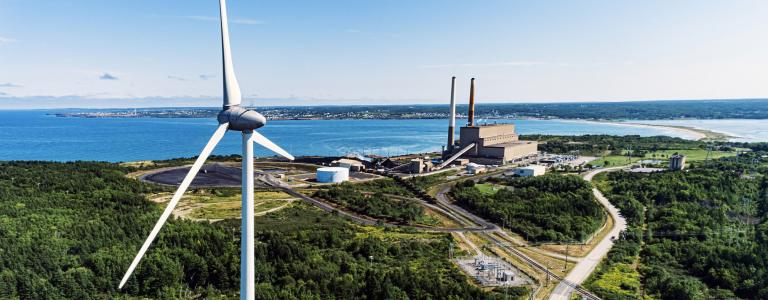New Agreement Marks First Step in Addressing Energy Charter Treaty Legacy
This is an important move to prevent legacy arbitration claims under the treaty, but more remains to be done.
June 27, 2024 – Yesterday, 26 European Union (EU) member states signed a declaration and endorsed an agreement on the interpretation and application of the Energy Charter Treaty (ECT), according to a press release published by the Belgian Ministry of Foreign Affairs. The agreement will be published in the Official Journal of the EU shortly, as stated in the release. This is an important step to prevent legacy arbitration claims under the treaty, but more remains to be done.
The new agreement—concluded between the EU, Euratom, and their member states—clarifies the common understanding that the ECT and its investor-state dispute settlement (ISDS) mechanism does not and never did apply within the EU. The treaty has drawn growing criticism from EU member states in recent years as it was used by intra-EU investors to circumvent domestic courts in violation of EU law and to challenge member states’ energy transition policies through ISDS. With more than 160 cases to date, it is the investment treaty that has generated the highest number of ISDS claims.
“This new agreement addresses a significant part of the risks still posed by the ECT, but more action is needed to prevent all fossil fuel arbitrations under the treaty in the future,” says Suzy Nikièma, Director, Sustainable Investment at the International Institute for Sustainable Development (IISD).
Following a failed attempt to reform the ECT, the EU, Euratom, Germany, France, Spain, Portugal, the Netherlands, Luxembourg, Denmark, Poland, Slovenia, Ireland, and the United Kingdom have decided to leave the treaty. These states generally justified their withdrawal with claims that the reform proposal fell short of their expectations and failed to allow for a decarbonization of the energy sector in line with the timetable warranted by the Paris Agreement.
However, the treaty contains a so-called survival clause that will continue to allow a wide range of fossil fuel companies and other investors with existing investments to sue states for a period of 20 years after their withdrawal. These are investors from the EU with investments in ECT countries other than the EU (outward), or investors from ECT countries other than the EU with investments in the EU (inward).
“Granting 20 more years of legal privileges to fossil fuel investors is fundamentally incompatible with climate mitigation. With the new agreement, the EU sends a strong signal to tribunals: ISDS claims within the EU under the ECT lack a legal basis. States should now take this as a precedent for wider steps to prevent such claims among all ECT contracting parties,” says Lukas Schaugg, policy advisor at IISD.
The EU and other non-EU contracting parties of the ECT can minimize the impact of this unusual, far-reaching clause through a further agreement modifying the ECT. Lawyers at IISD and ClientEarth have demonstrated that such an agreement is a viable solution under public international law and model text options will be published shortly.
About IISD
The International Institute for Sustainable Development (IISD) is an award-winning independent think tank working to accelerate solutions for a stable climate, sustainable resource management, and fair economies. Our work inspires better decisions and sparks meaningful action to help people and the planet thrive. We shine a light on what can be achieved when governments, businesses, non-profits, and communities come together. IISD’s staff of more than 250 experts come from across the globe and from many disciplines. With offices in Winnipeg, Geneva, Ottawa, and Toronto, our work affects lives in nearly 100 countries.
You might also be interested in
IISD: EU’s historic Energy Charter Treaty vote will boost energy transition
The European Parliament has voted for the European Union to withdraw from the climate-threatening Energy Charter Treaty.
Bruxelles propose une sortie à l’échelle de l’UE du traité sur la Charte de l’énergie, considéré comme contraire au Green Deal
La Commission européenne a formellement proposé un retrait « coordonné et ordonné » du traité sur la Charte de l’énergie. La législation proposée, dévoilée vendredi après-midi après des jours de spéculation, verrait l’Union européenne et ses États membres quitter le traité controversé en même temps, évitant le chaos d’avoir des pays individuels suivant leur propre chemin. L’Allemagne, la France, l’Espagne, les Pays-Bas et la Pologne faisaient partie de ceux qui avaient précédemment annoncé leur intention de se retirer de manière unilatérale, à l’instar de l’Italie, qui a quitté la convention en 2016.
Brussels tables EU-wide exit from the Energy Charter Treaty, considered at odds with the Green Deal
The European Commission has formally proposed a "coordinated and orderly" withdrawal from the Energy Charter Treaty. The proposed legislation, unveiled on Friday afternoon after days of speculation, would see the European Union and its member states leave the controversial treaty at the same time, avoiding the chaos of having individual countries going their own way.
EU moves to quit energy investment treaty
The European Union on Friday moved to pull the plug on the bloc's membership in the Energy Charter Treaty (ECT) — an investor protection pact that's seen as hampering decarbonization efforts.
